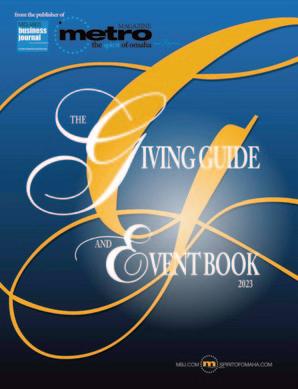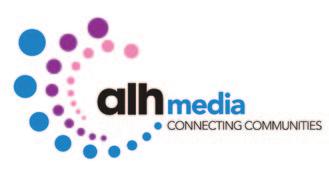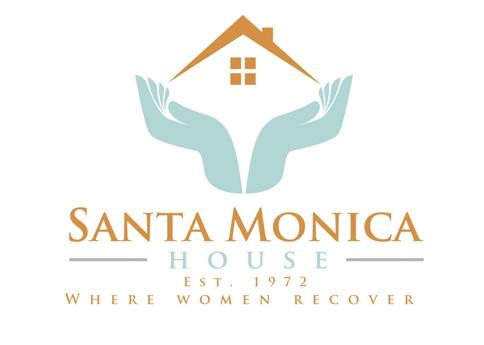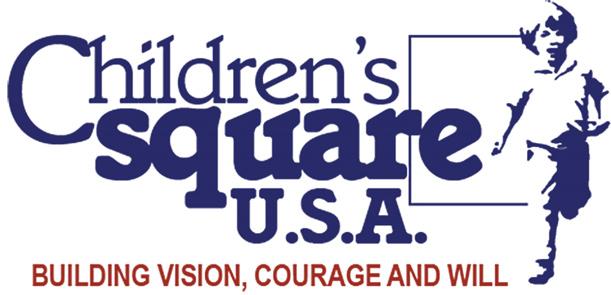



















19th Annual – Regional Resource of Nonprofit & Philanthropic Opportunities – 2024 Edition





















19th Annual – Regional Resource of Nonprofit & Philanthropic Opportunities – 2024 Edition

Book
19th Annual – Regional Philanthropic Opportunities – 2024 Edition


ALH Media, the publisher of Midlands Business Journal and metroMAGAZINE, is excited to present the 19th annual Giving Guide & Event Book: A Regional Resource of Nonprofit & Philanthropic Opportunities. This publication aims to offer nonprofits a valuable opportunity to gain yearlong visibility within the Omaha metro’s businesses and with influential leaders who are eager to contribute their resources, skills and support to create a positive impact.

Additionally, businesses have the opportunity to showcase their commitment to giving back and communicate their philanthropic message, thereby continuing to shape and improve our community’s future.
Don’t miss the chance to share your message by securing a prominent placement in our upcoming 2024 Giving Guide!
Contact publisher Andee Hoig at CONNECTSPIRITOFOMAHA.COM

Publishes in NOVEMBER 2023










DEIA—diversity, equity, inclusion and accessibility—is certainly an important topic in the business community, but it’s important to nonprofits, too. DEIA practices and awareness help ensure that people from various backgrounds are represented and able to thrive in organizations and in the community.








MANY NONPROFITS ARE ATTUNED TO DEIA (diversity, equity, inclusion and accessibility) by design as they serve specific sectors of the community that may be traditionally underrepresented such as women and girls, people of color, elderly individuals, economically disadvantaged populations, the LGBQTIA+ community, people with disabilities, and followers of different faiths.


metroMAGAZINE is celebrating DEIA by presenting profiles of a variety of such organizations in the community.
10909 Mill Valley Rd.
Omaha, NE 68154
(402) 763-8830
autismaction.org
Autism Action Partnership’s fundamental mission is to improve the quality of life for persons on the autism spectrum—as well for their families— through education, advocacy and support. The organization, established in 2008, serves Nebraska and western Iowa.
For 15 years, Autism Action Partnership (AAP) has filled critical gaps in the autism community. The organization provides programs and services across the lifespan to support families and individuals, increase opportunities for inclusion, and create pathways to individual prosperity. Now 1 in 36 children are diagnosed with autism spectrum disorder, and the needs for services and resources will only continue to increase both locally and worldwide, said President/CEO Justin Dougherty.
“AAP is not only focused on our own DEIA efforts, but on helping other businesses ensure their efforts include the disability community,” he said.
Autism Action Partnership works to advance DEIA ideals both internally and externally, Dougherty said: internally to ensure the voice of the autism community is included in how the organization approaches and implements its work; and externally by continuing to cultivate partnerships with individuals and organizations to expand its impact within communities of color.
“While we have made significant strides in both areas in recent years, we know much more can be done—and are committed to doing so,” Dougherty said.
AAP’s COMPASS program educates and supports businesses and organizations as they advance their own DEIA goals, especially as those goals relate to inclusion of autistic individuals and their families. Many DEIA efforts lack a comprehensive strategy for engaging the disability community as customers and as a workforce, Dougherty explained. By investing time and resources in COMPASS, AAP is working to increase diversity, equity and inclusion throughout Omaha.
Other DEIA goals AAP is pursuing include increasing diversity on its board and among its staff, increasing COMPASS efforts, increasing the number of employers involved in AAP’s workforce program for adults with autism, developing and expanding training, improving community accessibility to services and resources, and including more individuals with autism and other disabilities in DEIA conversations and initiatives.
Community members can assist the organization in many ways, Dougherty said, from monetary contributions to helping out at fundraising events.
“Donors, volunteers and interested community members can all support AAP’s
DEIA efforts by educating themselves, learning from the autism community, and serving as advocates and allies for inclusion in their everyday lives,” he said.
300 W. Broadway, Ste. 40 Council Bluffs, IA 51503 (712) 256-6009 sucentrolatino.com
Centro Latino of Iowa was formed 20 years ago to educate and empower Hispanic/Latino individuals and families in Pottawattamie County and surrounding Western Iowa counties towards thriving, self-sufficient and healthy lives. The organization provides family support services, immigration legal services, adult and cultural education as well as civic engagement and leadership opportunities.
Executive Director Walter Garcia Rodriguez said that although the organization primarily serves the Hispanic/Latino community, ethnicity does not determine eligibility for services.
“We are a community center that serves ALL, both immigrants and those who need our help and support,” he explained, adding that the organization’s main DEIA goal is to provide opportunities to as many individuals as possible through its services and resources.
As a small nonprofit, Centro Latino of Iowa’s greatest challenge is increasing its own visibility in the community, Garcia Rodriguez said. The organization is working to promote its services through its website and social media as well as expanded marketing and networking efforts, but welcomes the public’s participation in its fundraising events along with volunteerism and financial support.




A favorite quote that reflects his organization is, “Being grateful is a habit that transforms us and motivates others to do the same,” Garcia Rodriguez said.
Recruiting and retaining a diverse workforce is also important to Centro Latino of Iowa, Garcia Rodriguez said. The staff represents people from a variety of backgrounds as well as different ages and genders.
2121 S. 44th St. Omaha, NE 68105 (402) 558-8189
girlscoutsnebraska.org
Girl Scouts Spirit of Nebraska is nearly a century old (established in 1926) and serves the entire state of Nebraska under a mission that Girl Scouting builds girls of courage, confidence and character who make the world a better place. It’s the largest girl-serving organization in the state with about 13,700 members.
“Our organization is, and has always been, grounded in the Girl Scout Promise and Law. With the support of committed adult volunteers, activities are girl-led so that each girl’s leadership potential can bloom,” CEO Sarah Waldman said. “Girl Scouts has always been an organization where girls can be themselves without worrying about judgement or ridicule. By implementing DEI, we’re fostering differences, understanding and openness, thus creating an environment of comfort and acceptance.”
Since its founding, Girl Scouts has been rooted in activism, inclusion and advocacy—in making the world a better place, Waldman said. This core value reflects that the world is made up of many different cultures, values and traditions.
The organization values diversity in all its forms and does not discriminate based on race, religion, ethnicity, sexual orientation, gender identity, socioeconomic status, national origin, or physical/developmental disability.

“As an organization, we are committed to ongoing accountability, transparency and organizational growth. Girl Scouts of all backgrounds and abilities can be unapologetically themselves as they discover their strengths, rise to meet new challenges, and promote equitable outcomes for all,” Waldman said.
DEIA initiatives in recent years include ensuring pay equity internally, expanding membership opportunities to girl-identifying youth, working to create and sustain an inclusive work culture for Girl Scout staff and volunteers, and providing volunteers with DEI trainings and support as they work with youth of all backgrounds. Last year, the organization created a social impact and communications coordinator position, and it also has a civic engagement committee consisting of staff from across the state. And from ramps to accessible picnic tables, a top priority of Girl Scouts is to continually make camp properties more accessible for all.
It’s not easy to serve such a large region, Waldman said.
“The scope of our service area can be a challenge since we’re statewide. From geography to different beliefs across the state, our messaging can vary,” she explained.
Another challenge is debunking outdated stereotypes about Girl Scouts, Waldman said. “We want to fully convey that Girl Scouts is for every girl.” Even marketing materials contain appropriate language with a universal message that the organization values diversity and does not
discriminate, and translated versions are available for individuals whose primary language is not English.
“Girl Scouts love our volunteers and are always seeking more. The community outreach department works with youth in after-school programs, community centers, detention centers, and more. These youth get the Girl Scout experience at no cost while still getting to take part in all the wonderful activities that makes the organization so great,” Waldman said. “Volunteering with outreach is a low-key commitment of one hour a week with all materials provided for you by a Girl Scout staff member.”
DEIA remains an important goal, Waldman said. “While we aren’t able to measure the impact yet, we’ve made strides in updating our language, revamping our marketing materials, bringing in an outside expert, and providing development opportunities all focused around a more DEI-centered agency.”

8420 West Dodge Rd., Ste. 113
Omaha, NE 68114
nebraskaadaptivesports.org
Nebraska Adaptive Sports (formerly ENWAA) was established in 1975 to provide adaptive athletic opportunities for youth and adults in Nebraska and western Iowa. The organization serves people of all ages with disabilities through instruction, team organization, practice facilities, athletic equipment, registration fees, uniforms, travel expenses, team and individual awards, and much more, said NAS Board of Directors President Brent Rasmussen.
“In addition to promoting physical activity, there are many benefits associated with participation in wheelchair athletics such



as building self-esteem, making lifelong friendships, and traveling to new communities for competition,” he said.
Nebraska Adaptive Sports promotes inclusion and accessibility by fostering adaptive athletics for individuals with mobility impairment and other physical disabilities. Examples of activities and sports include wheelchair basketball, wheelchair softball, sitting volleyball, wheelchair track and sled hockey. The annual Junior Wheelchair Sports and Recreation Camp NAS offers in cooperation with CHI Health and the City of Omaha Parks and Recreation introduces youth to a wide variety of activities.
NAS teams in various sports have placed or won numerous times in competition at both the regional and national levels. NAS athletes have gone on to compete on college and professional teams and have represented the United States in Paralympic competition and the Parapan American Games.
NAS strives to reach anyone in its service area who is interested in participating, Rasmussen said.
“We find that people typically assume that potential adaptive athletes must use a wheelchair full-time to be eligible to participate. However, players are not required to demonstrate dependence on the use of a wheelchair or other mobility support equipment in their daily lives. We have many participants who are able to walk but who have some degree of physical impairment that make them unable to participate in traditional athletics,” he said. “Also, NAS serves youth and adults of all ages and our activities and teams are co-ed. Everyone with a qualifying disability is welcome. We also provide equipment and facilities and support for the costs of competition so expense is not a barrier to anyone who wants to play.”
NAS athletes and their families are great advocates for adaptive sports, Rasmussen said, but the all-volunteer board and supporters must work year-round on recruitment and awareness to make sure the organization’s reach is broad.
“Sharing the word about adaptive athletics is a wonderful way to support our inclusion efforts. We welcome anyone who may be interested in participating to contact us for more information or to discuss attending a local practice or competition to see what adaptive athletics are all about,” he said. “Community members can provide financial support to help us with travel, equipment and facility expenses, and we also can always use more volunteers.”
(formerly Rejuvenating Women)
5150 N. 90th St. Omaha, NE 68134 (531) 213-2663 restoredwings.org
In 2012, Julie A Shrader established Restored Wings with a mission to provide hope and restoration for victims and survivors of human trafficking and exploitation. Although the organization is located in Nebraska, Restored Wings serves survivors of all ages throughout the United States.
“We believe everyone is made in God’s image and is to be treated with dignity,” Shrader said, citing Psalm 82:4: “Rescue the weak and the needy; deliver them from the hand of the wicked.”
Restored Wings empowers survivors of human trafficking to lead healthy and independent lives through multiple means: raising awareness of human trafficking; educating the community to take steps toward prevention; advocating for victims’
rights and speaking on behalf of survivors in legislative and judiciary settings; and supporting local and state law enforcement and associated government agencies.

“We are committed to creating an environment where sex trafficking no longer occurs,” Shrader said. “We walk beside our survivors of human sex trafficking, loving them exactly where they are in life while helping restore their physical, emotional and spiritual health. With vocational training, education and redemption support, we assist them in regaining their independent lives.”
The organization also protects survivors by providing a safe and compassionate environment in which they can heal, including a housing facility with free services. The organization is also planning to further its reach of services to children experiencing human trafficking and sexual exploitation in need of specialized care, compassion, love and understanding in a safe and secure environment.
P.O. Box 3267
Omaha, NE 68103 (402) 883-7175
https://www.rcmc.org

Since 1984, the River City Mixed Chorus, Omaha’s only LGBTQ+ community choir, has been giving voice to the hopes of many that yearn for a more fully inclusive and diverse society. Its performances are based in truth, acceptance, equity and inclusion, said Artistic Director Dr. A. Barron Breland.
“Our mission is to create exceptional performances and show what diversity looks like. At our core, we want to be a safe place for all types of people to gather. We have a message of inclusion and acceptance that permeates our concerts




and our weekly rehearsals. Singers leave rehearsals feeling uplifted. It’s a weekly reminder what humanity can be. And when we perform, our presence is a protest our community needs to see,” Breland said. “In Nebraska and elsewhere, there is a storm coming for our trans community. RCMC is a refuge, a place of strength. The primary human need for all of us is love. We are people, human like anyone else. Where you find love is good and worthy and beautiful. We are proud to be here doing our part in Omaha, today and for the last 40 years.”
The organization has grown tremendously over the past decade, from 40 singing members to more than 160 in the 20232024 season. Its mission speaks to its goals, Breland said, supporting diversity, inspiring change, and empowering communities. River City Mixed Chorus aims to reach even more people with its messages of inclusion and love and joy through “music that matters.”
As a small nonprofit, RCMC relies on the generosity of donors and local organizations to help it extend its reach and influence more people. The RCMC team is working to expand corporate sponsorships, seeking like-minded companies whose goals for inclusion align with theirs.

RCMC is also conscientious about access, Breland said. Singers perform at large venues that have high levels of physical accessibility, and a wide range of ticket prices helps ensure that all who are interested can attend RCMC concerts.
“Within the organization, we strive to be fully inclusive of all people. We use genderfree language to describe our voices, we center the voices of our LGBTQ+ members, and we enable each person to select the concert attire that they feel best suits them,” Breland said. “Our success is largely measured by growth of our membership and growth of our audiences. We also
continue to have more requests for us to perform at different venues and events, which is a testament to the increasing levels of inclusion in our communities.”
13136 Faith Plz. Omaha, NE 68144 (402) 934-2955 trifaith.org
Since 2006, Tri-Faith Initiative has strived to cultivate inclusive environments that advance interfaith relationships and understanding.

“When we stand together, we can co-create a respectful, pluralistic society. Far too many of us lack the skills, the opportunity and even the inclination to work together across lines of difference toward a common goal,” Executive Director Wendy Goldberg said. “Learning is essential. It’s time to learn about religious diversity, equity and inclusion through historical, cultural and structural analyses of privilege and marginalization and relate these teachings to navigating the intricacies of life. It’s time to build deep, meaningful relationships with colleagues, friends, family and community leaders who relate to religion differently.”
The organization provides opportunities like United We Walk that invite the whole community to gather across differences as neighbors, as well as educational programming like the Race, Religion and Social Justice Conference that invites curiosity around the full spectrum of how people relate to religion differently, Goldberg said. Tri-Faith is making religious pluralism a social norm by convening diverse communities, encouraging candid conversations, and building bold partnerships to fill critical gaps.
The Tri-Faith Commons is the only interfaith collaboration of its kind in the nation, and it was the fruit of unlikely partnerships founded on empathy; it serves an example to others of what’s possible when people dare to build bridges instead of walls, Goldberg said. An organizational principle is the duty to defend religious freedom for all. Through programs like the Religious Equity Seminar, Tri-Faith aims to educate community leaders and members on the ways in which different religious communities have been privileged or marginalized throughout history, and how these equity issues have shaped and continue to shape the world today. The organization’s work is focused on asserting religious identity as a core tenet of DEIA work as well as normalizing the inclusion of diverse religious identities in our society.
Over half of Tri-Faith’s programs are designed to address the intersection of religion and other forms of identity, especially race, Goldberg said, and team plans to continue to improve outreach practices to have the most diverse team and board it is able to attract. Inclusion starts with communication, she added, and Tri-Faith ensures that in every public document, every job description, every interview, and every message its priority for inclusion is clear.
























THANK YOU TO ALL OF OUR PARTICIPATING NONPROFITS IN THE 2023 EDITION OF The Giving Guide & Event Book



















SPECIAL THANKS TO:




Vicki Quaites-Ferris began engaging with the Empowerment Network while serving as the Deputy Assistant to Mayor Mike Fahey. After her stint with the mayor’s office ended, Empowerment Network President and Founder Willie Barney asked her to join the organization as its first employee.
Since 2009, Vicki Quaites-Ferris has been part of the Empowerment Network, a collaborative of residents, leaders and organizations working to facilitate positive change in the community. She’s now the vice president of community development for the organization, which strives to improve the economic conditions and quality of life for Black Omahans, North Omaha residents and all citizens in the greater Omaha area. The movement has evolved into a nationally recognized approach for community engagement, collaboration, capacity-building and leadership development.
Leading to and in her current role, QuaitesFerris has had an enviable career and significant involvement in the community. She credits the foundation of her success to an especially close role model and mentor: her own mother. Quaites-Ferris said she watched her mother overcome many challenges as she worked multiple jobs to raise and educate four children.
“That, to me, showed me an example of what perseverance and tenacity looks like. My mother used to always say when things would get tough, ‘this too shall pass,’” she said. “Overcoming challenges and getting out of your comfort zone, for me, had to be a part of my DNA if I wanted to succeed.”
She started stepping out of her comfort zone early. For instance, Quaites-Ferris said, not many people know that she presented weather as a student at Wayne State College, although she studied neither meteorology nor broadcasting (business administration was her degree program). The opportunity simply came along to fill in for a friend.
“I had really no knowledge of the weather other than what I saw on TV, but they trained me on what to do,” she said. “And at that time, you didn’t have all of these nice technology gadgets that you have today. I mean, literally, it was like pulling off the weather from the AP (Associated Press wire service) and putting a cloud here or sunburst or rain here on the map. It really taught me geography and where the states were at, and I had a ball.”
More recently, Quaites-Ferris stepped out of her comfort zone when she appeared with her family on Family Feud. They won two of their matches and a Fast Money round, and held a screening party at Aksarben Cinema when the episodes were released. “We had a great time,”Quaites-Ferris said.

Professionally, however, she’s stepped out of her comfort zone repeatedly.
“I worked for two mayors: PJ Morgan, back in the late ‘80s/early ‘90s, and then found myself back at the Civic Center in 2007 with Mayor (Mike) Fahey,”she said. “It was pretty interesting to be able to work with two different mayors, one a Republican, one a Democrat, and I always tell people that the only difference is the approach that they take with different issues—yet knowing that they have the heart for the outcome and how they want the city to progress. So that was quite interesting.”
Quaites-Ferris served as the equity and engagement committee co-chair for Metropolitan Area Planning Agency’s (MAPA) Heartland 2050 initiative, which was created in 2014 to envision the Omaha-Council Bluffs
metro area long-term and provide guidance for future collaboration and action.
“I had the opportunity in 2018 to facilitate and work with, at that time, PolicyLink, USC Program on Environmental and Regional Equity (PERE) and the UNO Center for Public Affairs Research Department; we had elected officials, nonprofits and others to help update the 2015 equitable growth profile,” she said. “The profile in and of itself was for the Omaha-Council Bluffs region. And it showed in 2015—and even today continues to show—significant disparities in the region in education, transportation, workforce, earnings and housing. To me, the data was a wake-up call to inform those of us that have a hand in planning and preparing for the growth within the region. And we had to ask ourselves, ‘Is what I’m doing today going to lead to an equitable growth region that will benefit everyone?... and then asking our business community as a result of this data, ‘How are you going to operate differently so that the benefits can be felt by everyone and not just a select few?’”
These weren’t the only hard questions or issues Quaites-Ferris has faced head-on in her work with the community.
“In 2007, I served on the Greater Omaha Chamber North Omaha Development Plan committee—representing Mayor Fahey’s administration—and later on served on the executive committee for the North Omaha Village Zone Revitalization Plan that began in 2009 and became part of the City of Omaha Master Plan in 2011. During that planning process, I was with the Empowerment Network. The revitalization plan used the five nods of opportunity identified in

the North Omaha Development Plan as a catalyst for economic development in specific areas where development could occur with community input, and I will stress the key word is community input. We really wanted to make sure that the community had an opportunity through several visioning sessions to share ideas and feedback with the consultants on what they would like to see within their specific areas, including diverse housing types. They wanted to see grocery stores, retail, restaurant, arts and cultural space, and more.”
She continued: “That particular plan was focusing on North Omaha, because there were a number of plans that were conducted but did not really have any traction or financial support to move forward. And we wanted to make sure with this particular plan not only that the community had input, but that it also had some financial support afterwards to help to implement some of those ideas and plans. The Empowerment Network played a key role in the revitalization plan and have facilitated visioning sessions where we have residents, stakeholders, elected officials and others that came together to create a vision for the five nodes we identified as nodes of opportunity.”
Quaites-Ferris has seen positive changes in North Omaha during her 14 years with the Empowerment Network, including a decrease in homicides, increases in employment and
 ~ VICKI QUAITES-FERRIS
~ VICKI QUAITES-FERRIS
average household income, improved highschool graduation rates, and new housing and business development.
“However, as we’re transforming North Omaha, I still want to make sure that we are keeping the cultural, historical aspects of our community: I don’t ever want to lose that because that is something that makes our community unique,”Quaites-Ferris said. “However, I do believe that development is a good thing. And it’s a great thing that we all need to be able to experience in our community… I think we owe it to ourselves to be able to be a part of that thriving community.”
Quaites-Ferris is now at a point in her career where she can begin to look at what’s ahead after retirement, and she’s interested in more traveling—Dubai is one dream destination— and maybe starting a consulting business. When she is not active in the community, Quaites-Ferris enjoys traveling with her husband and taking long, adventurous road trips on his Harley-Davidson.
“Not everybody can say that they really enjoy what they’re doing… After I retire—Who knows when that will be?—I still want to be part of and engaged in the community, and still be a part of the Network because the Network has really been recognized not just locally or regionally, but nationally and internationally,”she said. “I would still like to be part of the ongoing growth and development of the organization.”
This special feature is sponsored by planitinc.
planitinc. is dedicated to honoring women whose influence not only impacts the boardroom but the community.
“Welcome to ”
one of the largest and most prestigious meeting planning firms in the midwest
omaha magazine B2B winners since 2008

national, regional and local meetings and events
nationally recognized as a leader in the meetings & event industry
supporting our community through our nonprofit work and the boards/organizations we are members of planitinc. has been providing event and meeting management solutions for over twenty years.
we are a client-centric firm that provides unmatched service and professionalism. while proudly located in the midwest, our crazy-talented event team works from NEW YORK to LA and everywhere in between.
AS WE’RE transforming NORTH OMAHA, I STILL WANT TO MAKE SURE THAT WE ARE KEEPING THE CULTURAL, HISTORICAL ASPECTS OF OUR community.

 SWARTZBAUGH-FARBER & ASSOCIATES, INC.
SWARTZBAUGH-FARBER & ASSOCIATES, INC.


Employers put effort into communicating their brand to attract new talent. What if you put the same amount of effort into offboarding voluntary departures?
Turn each exit into an opportunity to celebrate the contributions of departing team members. Employee exits are a natural part of the employee lifecycle. Lifetime employment is a trend that decreased with the influx of Generation Z into the workforce.
To introduce radical offboarding, add these activities to collecting technology and conducting exit interviews to create a show-stopping exit process:
Throw a farewell celebration. Organize a lunch or happy hour to celebrate your departing team member. Invite employees to wish them well. Share stories about the good times.
Share alum achievements. You have a culture that develops staff. Why not celebrate departing employees moving on to a new step in their career? One way to show your support is to communicate where departing employees land, whether in an MBA program or a promotion in another field.
Gather performance feedback. A common complaint when employees leave an organization is losing access to historical performance data. Offer a solution by gathering performance review data into an electronic file that employees can take.
mary drueke-collins
Create an alum network. Start a LinkedIn group to connect employees, allowing the development of lifetime relationships. This creates a referral source and will enable peers to stay in touch. Additionally, some of the best clients come from relationships with prior staff.
Are you looking to build a business case to create a radical offboarding experience? Go beyond minimizing organizational disruption; work to build positive relationships with departing employees. Keep in mind that boomerang employees are more common than you think. A large-scale analysis conducted by Harvard Business Review uncovered that almost 28% of new employees are returning staff. Investing in offboarding employees may reduce talent acquisition costs in the long run.
For more information, please contact your trusted advisor at Swartzbaugh-Farber – ‘Client Centered – Client Advocates™’


What is critical thinking? Critical thinking is a process that involves discipline in analyzing, conceptualizing and applying gathered information that has been generated from review, experience, observation or communication. Critical thinking involves objective consideration of various differing perspectives before arriving at a conclusion. Critical thinking assists us in making significant decisions in a rational manner and supported by evidence.
What are automatic thoughts? Automatic thoughts are instantaneous and unconscious. An example of automatic thinking is driving a car. You get in, turn the car on, and begin to drive without thinking through every detail of how to start the car. In this sense, automatic thoughts can be useful.

Automatic thoughts can become problematic when they result in (without a person even noticing) negative thoughts about one’s self. For example, you might have been doing well on a diet. You are then out at an event and eat a large slice of chocolate cake. Your thoughts may be something like: “You blew it again. You might as well give up and start shopping for much larger sizes. You are such a loser.”
Why shift away from negative thoughts to critical thinking? Automatic negative thoughts can lead to negative emotions. When we become aware of automatic thoughts that result in negative emotions, we can shift to critical thinking. Critical thinking can significantly improve our sense of well-being. By applying critical thinking, we can develop a higher level of emotional intelligence, which refers to our ability to be self-aware and effectively regulate our emotions. Regulation of our emotions can improve communication with others and result in better relationships.
How do I shift from automatic thinking? There are many strategies to shift from automatic thinking. Most strategies involve developing selfawareness. In the dieting example above, automatic thinking would result in you feeling bad about yourself and possibly engaging in selfdefeating strategies without realizing why you are doing so.

To shift to critical thinking, focus on becoming aware of the negative thoughts. Perhaps you ate two more pieces of cake after you beat yourself up over the first one. Alternately, perhaps, you isolated yourself, feeling depressed. Seek to become aware of when you feel bad and give thought to what triggered it. For the dieter, it might be a piece of cake, some chips or ice cream. Eating something that wasn’t on the planned diet resulted in feeling awful.
Once the thinking patterns are identified, challenge the thoughts: “Did I really destroy my entire diet by eating one piece of cake?” To the extent you identify thoughts about what a loser you are because you ate cake (and gee, actually enjoyed it), shift to compassionate thoughts about yourself: “Dieting is difficult and I have been doing a great job. Being perfect at it at all times is not required.”
Practice critical thinking in unemotional situations to develop the skill. When you get in your car one day, actually give thought to the process of driving. Consider whether you will use more or less gas at different speeds. Think through the route you plan to drive even if it is routine. The more we practice critical thinking generally, the more likely we can develop and apply the skill to support us when we need to.


Recently, I had the opportunity to experience Pink live. It was a fantastic concert for a multitude of reasons: It was a rare chance to sing, sweat and dance with my BFF in a sea of strangers. We were hot as hell and no one cared. Worry-free and dripping with sweat, we belted out the lyrics, living each moment one song at a time.
But beyond that, what stands out in my mind is the strength and conviction of Pink on stage. Her performance was precise and technical, yet humble and outspoken. She is a presence without apology. She has defined who she is.
And who couldn’t use more of that?
As a single mother of three, business owner, and dentist, I find myself working or thinking that I should be working, or experiencing “mom guilt” for working… and on and on and on. These thoughts are a breeding ground for that inner voice inside my head to become one big apology: Sorry I’m late, sorry you don’t like what I made for dinner, sorry I forgot to pick you up from school, sorry I missed your last two games, sorry I am not a better boss—sorry, sorry, sorry. One continuous cycle of trying to keep up.


Living life without apology, feeling strong in my convictions, being outspoken without remorse—Yes, I want more of that!
So, here goes. My life—without apology—in four words: messy, driven, grateful, resilient




Messy. Life is messy; I do not apologize. In my life, I have faced only one tragedy without a solution. Most mess-ups can be solved. When you try as hard as I do, you’re going to mess up. My goal is to see each for what it is and move on.
Driven. Yep, I am more driven than most. I am disciplined and I follow through. I set goals and I reach them. I do this because I want to. I am not sorry.
Gratitude. The secret to life. To be grateful is to be real, is to be honest, is to be here. I simply can’t understand life without it.
Lastly, resilience. This is an important one. This is the skill I have had to master most. Resilience is what do when life knocks you down, when the unexpected and unthinkable becomes your reality. For this, there is no cookbook. This is the one that creates rough edges. And for this I do not apologize.
So, love her or hate her, Pink is who she is. She is a powerhouse and a badass. She is but one example of conviction regardless of risk.
So, as you’re reading this, your inner voice might be scheming. You might be thinking of the three thousand things you need to get done or what you could’ve done better yesterday. If so, I encourage you to find your “Pink.”Look for a badass in your life. Find someone who screams out to you and who makes you stronger. Find your person and your four words. Choose to follow your heart—and remember, you are who you are and that is enough. There is no need to apologize.









Name of Organization: QLI
Event Name: 19th Annual QLI Golf Challenge


When: August 7, 2023
Where: The Players Club at Deer Creek
Why: Raising funds for QLI’s Life Path Services program
Attendance: 124 golfers and over 50 QLI team member volunteers
Amount Raised: $110,000
Mission: Deliver life-changing rehabilitation and care. Protect dignity, install purpose, and create hope. Commit to excellence.
About: QLI is one of the nation’s premier post-hospital centers for brain injury, stroke, spinal cord injury, chronic pain, and limb loss. Because we know great rehabilitation is more than just the science of physical recovery, we combine the best from medicine, education and psychology to heal the body, mind and soul. Put simply: we rebuild lives.
For more information: (402) 573-3700, www.teamqli.com
Sponsors: AOI, The Benefit Group, Consonus Pharmacy, Fusion, Pinnacle Bank, HD Supply, Kiewit Building Group, Security National Bank, Colorvision, HCIS, LRS, Sysco, UnitiMed, UNICO, Pella Omaha, SEI, United Heartland, Vetter Senior Living, Holland Basham Architects, Eide Baily
Event Summary: Thirty-one foursomes spent a beautiful day golfing at The Players Club at Deer Creek to support QLI’s most unique program, Life Path Services. A mix of traditional and “challenge” golf, participants played friendly competitions intermixed with opportunities to learn about QLI’s programming. Golfers left with an appreciation of the deep impact their support has on those whom QLI serves.



Name of Organization: Tri-Faith Initiative
Event Name: United We Walk 2023: United for a More Inclusive Omaha



When: September 10, 2023
Where: Tri-Faith Commons
Why: United We Walk invited the greater Omaha community to walk in solidarity against hatred and violence and send a clear message: United, we are stronger; differences of background and belief should never keep us from realizing true community, because we need community now more than ever.

Special Guests: City Councilman Pete Festersen, Douglas County Commissioner Chris Rodgers, Senator Tony Vargas
Catered by: Clean Eatz
Event Planner if any: Tri-Faith Staff, Diana Gleisberg Meredith

Attendance: 2,800
Amount Raised: $189,580
Mission: To cultivate inclusive environments that advance interfaith relationships and understanding. For more information: (402) 934-2955, info@trifaith.org
Sponsors: The Sherwood Foundation, Douglas County, UNMC, the Jewish Community Relations Council Omaha, Google, Omaha Steaks, Boys Town, CQuence Health, Heritage Communities, Holland Foundation, Omaha Community Foundation, Midwest DCM, Security National Bank, Omaha Public Power District, QLI, All Makes, Centris Federal Credit Union, Dr. Ali Khan, College of Public Health, TACK Architects, Vic Gutman & Associates, OneWorld Community Health Centers , Jewish Federation of Omaha DEIA Committee

Name of Organization: Project Houseworks
Event Name: Brush-Up
When: August 19, 2023
Where: Homes owned by low-income older adults in the Omaha metropolitan area.
Why: Teams of volunteers participate in Brush-Up to provide low-income older adults with a free exterior paint job.


Attendance: 350
Amount Raised: $125,000
Mission: Project Houseworks enhances lives and strengthens communities through the preservation of quality affordable housing. For more information: (402) 965-9201, www.projecthouseworks.org
Sponsors: Presenting sponsors: Nebraska Total Care, Lozier Corporation, and Diamond Vogel Paint and Coverings. Other sponsors include Grace Hill Church, Tenaska, Northern Natural Gas, Charles Schwab, United Healthcare, Mutual of Omaha, Right at Home, Cox Communications, Centris FCU, Baird Holm, MyStaff, Inc., FNBO, Nebraska Medicine, HDR, and many other generous supporters who helped make Brush-Up 2023 a huge success.


Name of Organization: Ronald McDonald
House Charities in Omaha
Event Name: Wings & Wheels Omaha


When: August 11, 2023
Where: Signature Flight Support
Why: Every year, Ronald McDonald House Charities in Omaha provides over 14,000 nights of lodging—and our goal is to make each one of those nights (and the days surrounding them) as uneventful as possible. That’s why our House so closely resembles a home. Comfortable beds, hot showers, laundry facilities, family-friendly kitchens, play areas and more create that foundation of normalcy. But beyond the physical environment, we provide a built-in support system that provides assistance, advice, and resources for just about any need imaginable. Not to mention that the families who stay here are more than willing to help one another out as much as possible. They may belong to a club they never wished to join, but if you’re in, you’re family.
Catered by: Attitude on Food, Elegant Edge Catering, Olive Garden, Magnolia Hotel
Attendance: 400
Amount Raised: $165,000
For more information: (402) 346-9377, www.rmhcomaha.org

